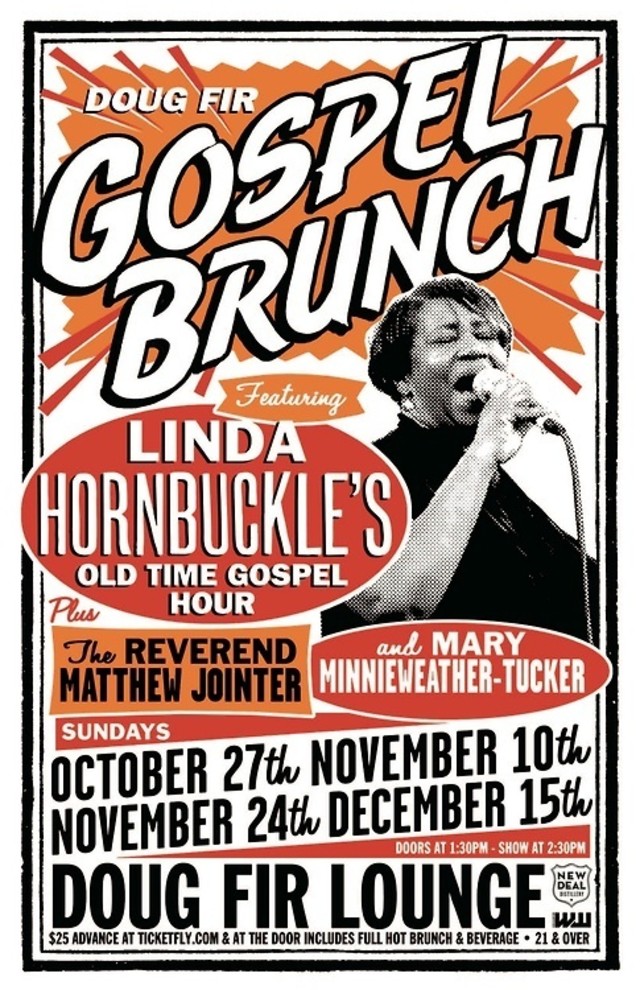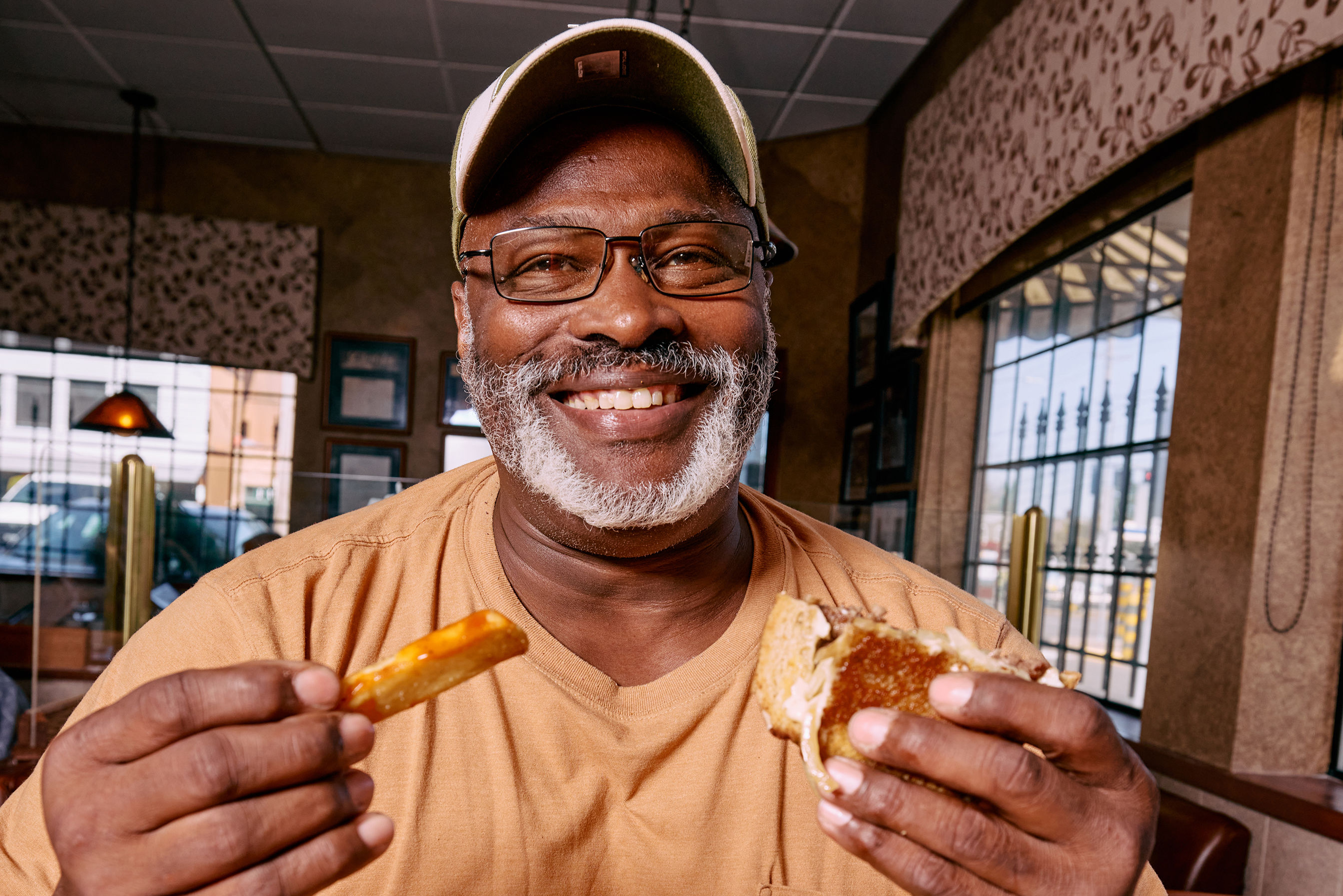The Doug Fir’s Gospel Brunch: Celebration or Appropriation?

When you think of the Doug Fir Lounge, you likely think late nights, indie bands, a drink or three, and a crowd of chatty music-lovers. You likely don’t think gospel and soul food. But that’s what the Doug Fir wants you to picture with its new “Gospel Brunch” series.
On Sunday, October 27th, a crowd filled the downstairs lounge during—oddly enough—the afternoon, for a buffet of fried okra, grits, and gravy, and a performance from arguably our city’s leading gospel singer, Linda Hornbuckle. “We've been working on the concept for this series for quite awhile and Linda and her band were our first choice,” the Doug Fir’s press contact told me via email. There are four on the books for this season, including on November 10, and the venue hopes they will become a regular feature.
I won’t lie, I was fairly concerned about the tastefulness of an event that basically looked like “white hipster bar dresses up as black church.” Sure, that simplification might not be fair to any of the parties involved, but we’re still talking about a traditional African American religious art form being performed in one of the highest profile music venues in a statistically very white and very godless city (to say nothing of the music scene), to patrons sucking down bloody maries and munching on a buffet of “chicken-fried steak bites” (decidedly impossible to eat in a single bite). I think you can understand my skepticism.
I realize that I just tossed around a lot of labels, and that’s part of the problem. The inescapable gray area involved in an event like this is apparent in how easily we turn to loaded words like “traditional,” “godless,” and yes, even “hipster.” These are all nebulous and malleable categories, ones with which a person can identify one minute and ridicule mercilessly the next. We may be a bit hazy on their definitions, but this flexibility unavoidably makes the terms rhetorically popular.
The thing is, though, that’s exactly the way cultural appropriation works. I can cast a critical eye on an event like this all I want, but I like gospel music, and I really like gravy and fried things, so I was pretty much guaranteed to enjoy myself that afternoon. But as I tucked into my collard greens, I couldn’t help but wonder: what did that say about me?
The Doug Fir’s usual crowd of late-20- and early 30-somethings skewed a bit older, a bit more multi-racial, and a bit less hip for this event. At a fresh-faced 23-years-old, I was probably the youngest person there, and the second youngest tried to sell me his ticket a block from the club. There were a few tables of African American audience members, clearly fans, who were dressed like they were coming from church—Linda Hornbuckle certainly had. Much of the audience, though, seemed to have come for the kind of at-a-distance, throwback entertainment the Doug Fir’s retro-styled poster promised.
Fortunately, Hornbuckle’s performance did quite a bit to assuage my fretting, and not only because she and her band are completely crushing. More importantly, Linda knew it was no church congregation before her, and she wasn’t about to let the audience have its comfortable moment of cultural voyeurism and be on its way. Instead, she took plenty of opportunities to gracefully remind us of the painful history behind her musical tradition. An a cappella rendition of an old slave song that clearly hadn’t changed much from its origins in the fields hit home particularly hard. I can’t tell you whether or not the people around me got the message, but I can tell you the message was there for those who were listening.
Doug Fir Gospel Brunch
Nov 10 at 2:30
Doug Fir Lounge
Portland isn’t exactly known for its proud history of race relations. It’s no secret that our urban development has repeatedly devastated existing minority neighborhoods. In the ‘50s and ‘60s, black performers who stopped in the Rose City to play one of the few venues open to them often reportedly felt that the discrimination they encountered here was the worst they’d seen outside of the deep south. Gospel music exists in part as an acknowledgement and a response to this troubled history of slavery and discrimination throughout the country, and it’s no different here in Portland. That’s the gospel music that Hornbuckle and her band gave us that Sunday afternoon. It may not have been the gospel some of the crowd realized they were in for, though.
Of course, if you want the real thing, there’re many churches where you can be part of that experience, not just observe it from the outside. And this is not to say gospel can’t be just as powerful beyond the church (for example, next month’s Gospel Christmas). But currently, I’m not sure an event like the Doug Fir’s Gospel Brunch engages the difficult but crucial historical context of this music in a responsible way. To this reviewer, it felt uncomfortably closer to aesthetic appropriation than soulful celebration.
We’ve spoke our bit. Now, what are your thoughts?




